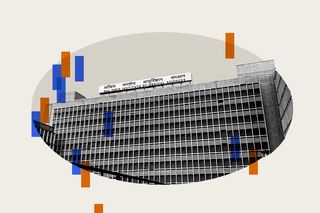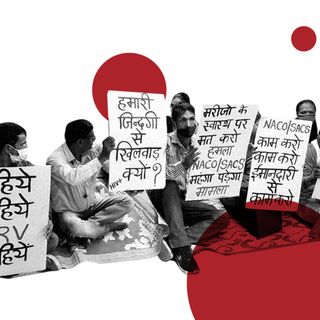
SC, ST Faculty Positions Vacant in AIIMS Despite Eligibility of Applicants, Shows Report
The parliamentary report tabled in Lok Sabha earlier this week shows how casteism continues to thrive in higher education institutions.

A parliamentary standing committee has alleged rampant, across-board, discrimination against reserved category persons in the All India Institute of Medical Sciences (AIIMS) faculty, Delhi. The committee’s report, tabled in the Lok Sabha earlier this week, is yet another example of how premium public higher education institutions continue to be out of reach for the most marginalized communities of this country — despite decades of affirmative action policies, and contrary to popular anti-reservation perceptions.
The Constitution of India designates the setting aside of a certain number of positions in public education and government service for historically (and currently) discriminated, deprived, and disadvantaged communities, recognized as the Scheduled Castes (SCs) and Scheduled Tribes (STs) as part of its fundamental rights. While 15% of seats are to be reserved for SCs, 7.5% seats are earmarked for STs.
Despite these provisions, however, members belonging to these communities remain underrepresented in both higher education and public service. The problem is particularly acute in higher education, in top-ranked institutions of the country such as the IITs, IIMs, and now even AIIMS Delhi. A 2019 report published in The Print, for instance, had mentioned that only 180 teaching positions — out of a collective number of 9640 — were occupied by STs and SCs across all IITs and IIMs in the country. Only 23 of those 180 teachers belonged to a Scheduled Tribe. Several of these institutions did not have a single ST faculty member.
The problem of underrepresentation in teaching positions extends to other public education institutions too. Government data from 2021 on central universities mentions that more than half of the total number of teaching positions reserved for STs and SCs remained vacant. Often, upper-caste members are alleged of willfully leaving hiring positions vacant in such institutions, usually under the ruse of not finding any suitable candidate for the post. In December last year, SC, ST, OBC, and Muslim PhD candidates in JNU alleged that they were deliberately marked low during their interviews, which brought their overall score down, denying them a fair chance at admission. Soon, #NFSScam (NFS Standing for Not Found Suitable) began trending on Twitter, with students and researchers from other universities also sharing similar anecdotes on the discrimination they and their acquaintances faced over the years.
The standing committee report on AIIMS makes an allusion to such discriminatory hiring policies. It makes note of the vacancies in faculty positions in the institute, and instructs the Ministry of Health and Family Welfare to submit an action plan within three months, while mentioning that the committee was “not inclined” to accept the government’s usual reply of not finding suitable candidates for such posts. The committee said that the practice of not finding suitable candidates was an incorrect and biased assessment of students from the reserved communities, who in reality are equally bright and deserving of opportunities as general candidates. The report further instructs that no teaching position reserved for STs or SCs should go vacant for more than six months under any circumstance. The committee also recommended including ST and SC members in the selection committee to ensure proper implementation of its instructions.
Related on The Swaddle:
Casteism Still Thrives in Elite Schools in India. What Would Anti‑Caste Education Look Like?
The committee observed that discrimination was extant not only in hiring but also in the regular academic processes of the institute. For instance, it noted that reservation of seats was not extended to the super speciality courses, consequently keeping reserved category candidates out of those fields. Further, it also observed that often ST and SC students were marked low in their practical exams, which brought their overall score down despite them scoring fairly well in their theory papers. To counter such practices, the committee recommended a name-blinded process — where examiners won’t know of the student’s name, and by extension their caste — for practical assessments. The committee also recommended having ST and SC members in the general body of AIIMS Delhi, so that they are not deprived of their right to participate in the decision-making processes of the institute.
The committee also strongly discouraged the process of outsourcing of non-core work in the institute — drivers, safai karmacharis, data entry operators — to contractors. It felt that contractual hiring diminished the scope of rightful reservations in these positions, and made the workers — often coming from downtrodden sections — doing these jobs prone to excessive exploitation at the hands of their contractors. It thus strongly recommended that the institute discontinue contractual hiring for these positions.
The findings of the committee point out how even education and legal safeguards and provisions cannot curb casteism on their own. In even an institute where only the “best of the best” make it, they carry their casteist notions and prejudices with them, and continue to deny equal opportunities to the marginalized. The committee’s call for urgent action is an important step in ensuring that there is space for social justice in not just AIIMS but all higher education institutes of the country. The recommendations carry potential for setting a precedent for actively fixing the casteism that plagues our education system.
Amlan Sarkar is a staff writer at TheSwaddle. He writes about the intersection between pop culture and politics. You can reach him on Instagram @amlansarkr.
Related


4,484 People Died in Police Custody Since 2020: Govt Data
